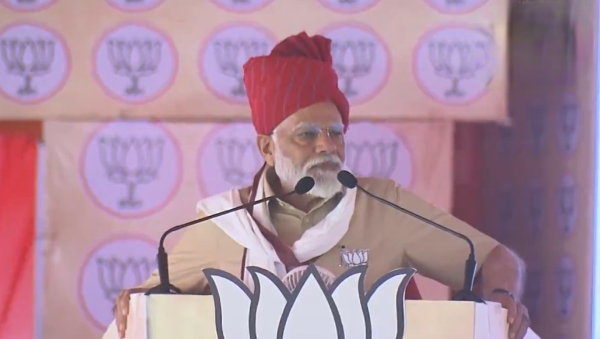During his recent visit to Churu, Rajasthan, Prime Minister Narendra Modi brought the nation’s attention back to a pivotal moment in India’s fight against terrorism – the Balakot air strike of 26th February 2019. The Prime Minister used this occasion to reassert his commitment to the nation’s security and sovereignty.
The Balakot air strike was a significant event in India’s counter-terrorism efforts. The Indian Air Force had targeted a major terrorist training camp in Balakot, Pakistan, inflicting substantial damage. “We had taught a lesson to the terrorists,” said PM Modi, emphasizing the decisive action taken by the country.
The Prime Minister also addressed the controversy that followed the surgical strikes and air strikes. He criticized the Congress and its allies, collectively referred to as the ‘Ghamandia’ alliance, for questioning the authenticity of the strikes and asking for proof. “Dividing the country and insulting our army is the identity of the Congress Party,” PM Modi stated, expressing his disapproval of the opposition’s stance on the matter.
The Prime Minister’s remarks come at a time when the nation is grappling with various challenges, both internal and external. His words serve as a reminder of the government’s firm stance on national security and its commitment to safeguarding the country’s integrity.
The Balakot air strike and the subsequent political discourse have had a significant impact on the nation’s psyche. The event and its aftermath have shaped the narrative around national security and the country’s approach to terrorism. As the nation moves forward, the lessons learned from these events will continue to guide its path.
PM Modi’s revisit to the Balakot air strike during his Churu visit serves as a stark reminder of the country’s resolve against terrorism. It underscores the government’s commitment to national security and its readiness to take decisive action when necessary. As the country continues to face various challenges, the government’s stance on these issues will play a crucial role in shaping the nation’s future.



